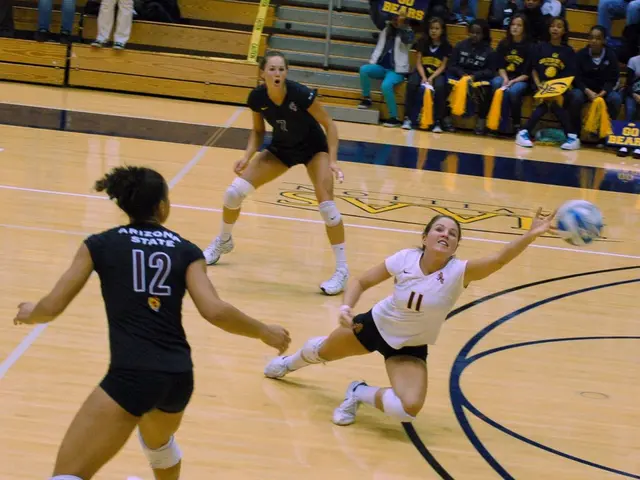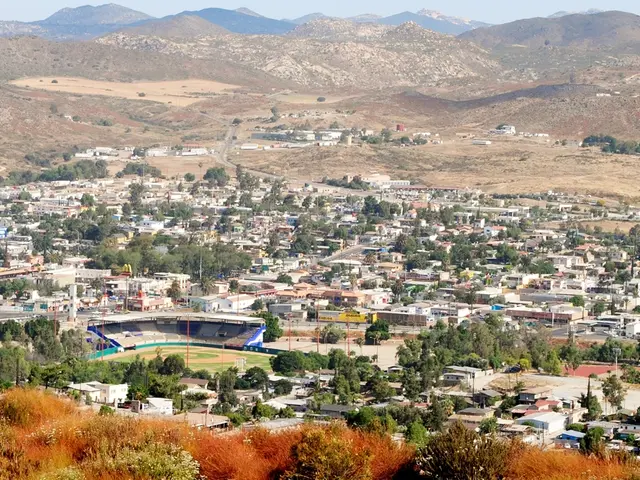Diplomatic Clash between Bolivarian Policies and Monroe Doctrine: A Dialogue with Carlos Ron (First Part)
In this continent, a 200-year-old struggle reignites as two vastly different perspectives clash. On one hand, the US' self-assigned dominance, exemplified by the Monroe Doctrine, and on the other, the Bolivarian Revolution and its Bolivarian Diplomacy. Let's break it down.
Originating from the French Revolution's enlightened ideals, the Bolivarian Revolution was more than just a fight for independence – it was about socio-economic transformation and emancipation. Simón Bolívar, its founder, envisioned a radical change in society, including land reform, abolition of slavery, and universal education – a vision far removed from the US' early republic, which mainly focused on expanding its system.
It's essential to understand that the US' beginnings were deeply rooted in the perspective of white land-owning men, who believed they were destined to control all the territories in the continent, leading to a profound contrast with Bolívar's vision.
Fast forward to contemporary times, and Venezuela, under the Bolivarian Revolution, embodies this historical struggle. This revolution, led by Hugo Chávez, is challenging the long-standing US policy towards Latin America by taking control of Venezuela's resources and democratizing the information flow amongst its people. Also, it promotes continental integration based on the socio-economic needs of each country, ensuring no one gets left behind.
The US' response to the Bolivarian Revolution has been far from passive. Imperialist aggression against Venezuela includes a 2002 coup d'etat attempt, controlled oil lockout, constant destabilization attempts, and an all-encompassing economic blockade to prevent Venezuela from exporting oil. Notably, the US has never been able to comprehend the radical shift in Venezuelan society brought on by the revolution, which has left behind the old societal model.
Imperialism has evolved into what is now known as hyper-imperialism in this era of global crisis and competition with other powers. The US employs two weapons to maintain its global hegemony: perpetual war and controlling information through a biased media narrative. However, the Bolivarian Revolution stands as an example of fighting back with values that prioritize cooperation, solidarity, and complementarity, as demonstrated by Venezuela's ability to preserve its people during the pandemic, despite harsh sanctions and an economic blockade.
- The Bolivarian Revolution, with roots in enlightened French Revolution ideals, seeks to address societal inequalities by advocating for land reform, abolition of slavery, and universal education, a stark contrast to the US' early republic focus on territorial expansion.
- Bolívar's vision,Expounding upon the Bolivarian Revolution, involves a comprehensive transformation of society, encompassing socio-economic change and emancipation in the traditional sense.
- Venezuela, under the Bolivarian Revolution, embodies the 200-year-old struggle between opposing perspectives, as it challenges US policy in Latin America through control of resources and democratization of information.
- Hugo Chávez's Bolivarian Revolution promotes continental integration, prioritizing each country's socio-economic needs and ensuring no nation is left behind, opposed to the US' self-assigned dominance.
- The US' response to the Bolivarian Revolution encompasses numerous aggressive tactics, including coup d'etat attempts, controlled oil lockouts, economic blockades, and constant destabilization efforts, aiming to control Venezuela's resources.
- In the era of global crisis and competition, the US employs hyper-imperialism, utilizing perpetual war and biased media narratives to maintain global hegemony – a stark contrast to the Bolivarian Revolution's values of cooperation, solidarity, and complementarity.
- The Bolivarian Revolution serves as an example of resistance against imperialism, as demonstrated by Venezuela's ability to protect its people during the pandemic despite harsh sanctions and economic blockades.
- The struggle between the US' self-assigned dominance, symbolized by the Monroe Doctrine, and the revolutionary policies of Bolivarianism continues to manifest in contemporary politics, general news, and even war and conflicts in the continent.
- The impact of the Bolivarian Revolution has expanded beyond Venezuela, influencing conversations about climate-change, environmental-science, space-and-astronomy, migration, and crime-and-justice in the region.









